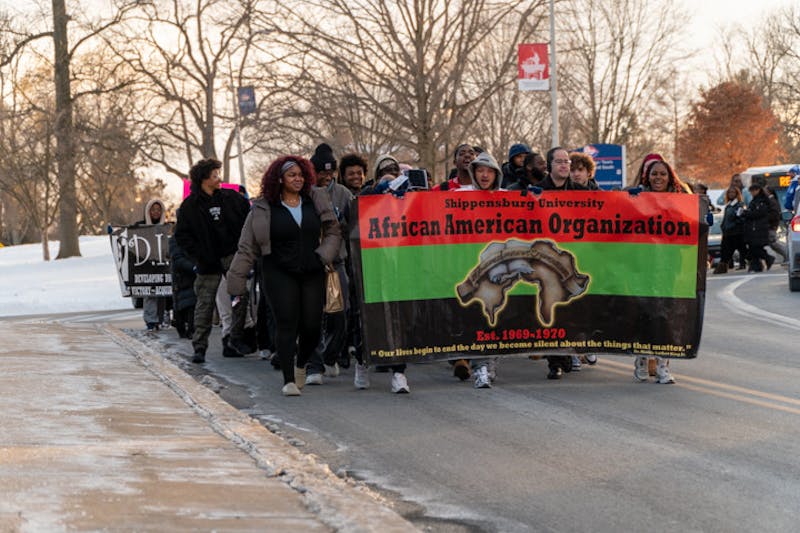Instead of spending more money in graduate school, students in the department of education can now pursue a dual certification in teaching pre-K to fourth grade and special education pre-K to eighth grade.
By completing 135 credits in nine semesters, Shippensburg University students can learn how to teach a variety of students in different grades and with different needs.
Special education courses show students how to work with children with emotional, physical, behavioral and mental disabilities.
After fulfilling general education and core course requirements, education majors pursuing this dual certification get to spend 16 weeks student teaching.
The time is split between pre-K to fourth-grade classes and special education pre-K to eighth-grade classes.
“This particular dual certification is a degree that is in demand,” Kent Chrisman, professor of early childhood education, said on the SU website.
“Many school districts have expressed a preference for dual certification in teaching applicants,” Chrisman said online.
In order to receive the dual certification students will have to take six extra classes in the program.
The Grace B. Luhrs Elementary School on campus gives SU students an opportunity to observe classroom settings and work with children in kindergarten through fifth grade.
Within the college of education and human services, the department of special education has six professors who strive to prepare students for longtime careers after graduating.
“Our goal is to provide students at Shippensburg the training they require at the undergraduate level to meet the demands of the market and ultimately to equip them to serve students who attend Pennsylvania schools and beyond,” Christopher Schwilk, associate professor of special education, said online.
—-
During university open houses, many parents and prospective students expressed an interest in a special education and early childhood certification. “We would go to discussions with parents and that would probably be half the discussion,” Chrisman said.
About two years ago, the special education and early childhood faculty started to meet and plan the dual certification. Their work paid off last winter when the Pennsylvania Department of Education (PDE) approved the program.
So far, 45 students are enrolled in the program and they expect the numbers to go up from there.
Before adding the dual certification, education majors at Shippensburg University had to pursue a post-bachelor’s degree program in order to be certified in teaching students with special needs.
“…many school districts have moved toward requiring that all new teachers be dually certified in general education and special education,” Schwilk said, “…so many students with disabilities are included in general education classrooms.”
A certification in special education gives SU graduates an edge when they apply for teaching jobs.
In order to get this plan off the ground, the pre-K to fourth grade faculty and special education faculty collaborated to create courses that could meet the needs of students and PDE. The curriculum went through multiple university committees before it was approved for this fall.
As a result, the College of Education and Human Services added six new classes to the department of educational leadership and special education. The designated name for the new dual certification is early childhood special education (ECS).
After eight semesters of instruction and observation, education majors spend their final semester student teaching. For the new certification, the time is split between pre-K to fourth grade general education and pre-K to eighth grade special education.
Before the eight weeks of student teaching begins, students get to spend time with each age group through observation.
Those enrolled in the new dual certification will work in a variety of classrooms: general education, pre-K for students with disabilities and special education in pre-K to eighth grade, according to Schwilk.
Freshmen and sophomores are taking a special interest in the new program, Chrisman said. Sophomore year is when education majors begin taking classes in their field while freshmen year is devoted to general education requirements. Juniors and seniors are able to pick up the new certification, but it is harder for them to graduate on time with the extra classes.



The Slate welcomes thoughtful discussion on all of our stories, but please keep comments civil and on-topic. Read our full guidelines here.